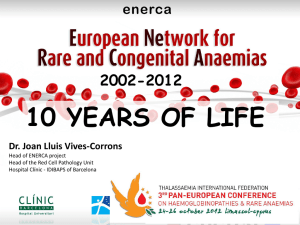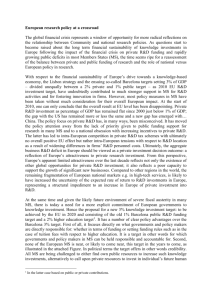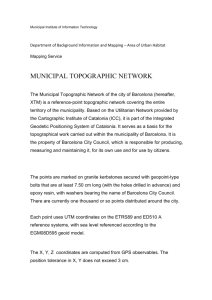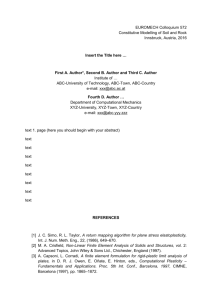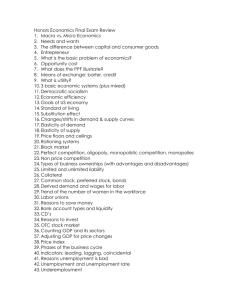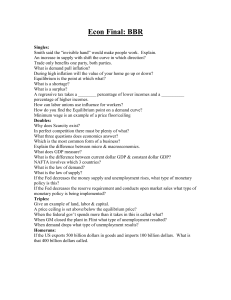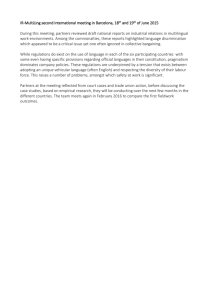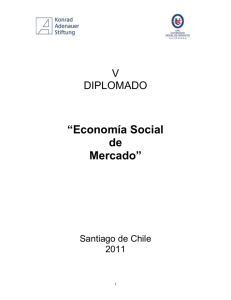introduction to economics
advertisement
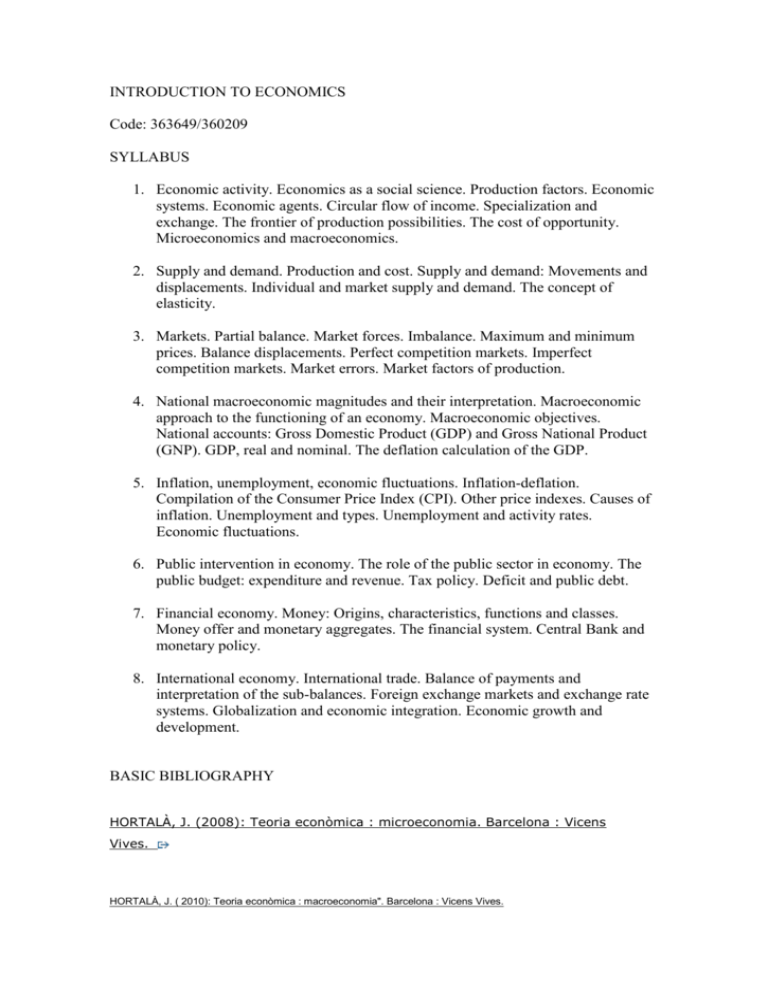
INTRODUCTION TO ECONOMICS Code: 363649/360209 SYLLABUS 1. Economic activity. Economics as a social science. Production factors. Economic systems. Economic agents. Circular flow of income. Specialization and exchange. The frontier of production possibilities. The cost of opportunity. Microeconomics and macroeconomics. 2. Supply and demand. Production and cost. Supply and demand: Movements and displacements. Individual and market supply and demand. The concept of elasticity. 3. Markets. Partial balance. Market forces. Imbalance. Maximum and minimum prices. Balance displacements. Perfect competition markets. Imperfect competition markets. Market errors. Market factors of production. 4. National macroeconomic magnitudes and their interpretation. Macroeconomic approach to the functioning of an economy. Macroeconomic objectives. National accounts: Gross Domestic Product (GDP) and Gross National Product (GNP). GDP, real and nominal. The deflation calculation of the GDP. 5. Inflation, unemployment, economic fluctuations. Inflation-deflation. Compilation of the Consumer Price Index (CPI). Other price indexes. Causes of inflation. Unemployment and types. Unemployment and activity rates. Economic fluctuations. 6. Public intervention in economy. The role of the public sector in economy. The public budget: expenditure and revenue. Tax policy. Deficit and public debt. 7. Financial economy. Money: Origins, characteristics, functions and classes. Money offer and monetary aggregates. The financial system. Central Bank and monetary policy. 8. International economy. International trade. Balance of payments and interpretation of the sub-balances. Foreign exchange markets and exchange rate systems. Globalization and economic integration. Economic growth and development. BASIC BIBLIOGRAPHY HORTALÀ, J. (2008): Teoria econòmica : microeconomia. Barcelona : Vicens Vives. HORTALÀ, J. ( 2010): Teoria econòmica : macroeconomia". Barcelona : Vicens Vives. KRUGMAN, P.; WELLS, M.; OLNEY, L. (2012): Fundamentos de economía. 2ª Edición. Barcelona : Reverté. MANKIW, G. (2012): Principios de economía. 6ª edición. Madrid: Paraninfo. TUGORES, J. et al. (2011): Economia. Barcelona : Vicens Vives. CREDITS: 3 credits CLASS CONTACT HOURS: three hours weekly EXAMINATIONS: Continuous evaluation (grade based on periodical exercises, assignments and papers) or based on the grade received in a midterm exam, a final exam/paper. LANGUAGE: English. The same course is also offered in Spanish.
